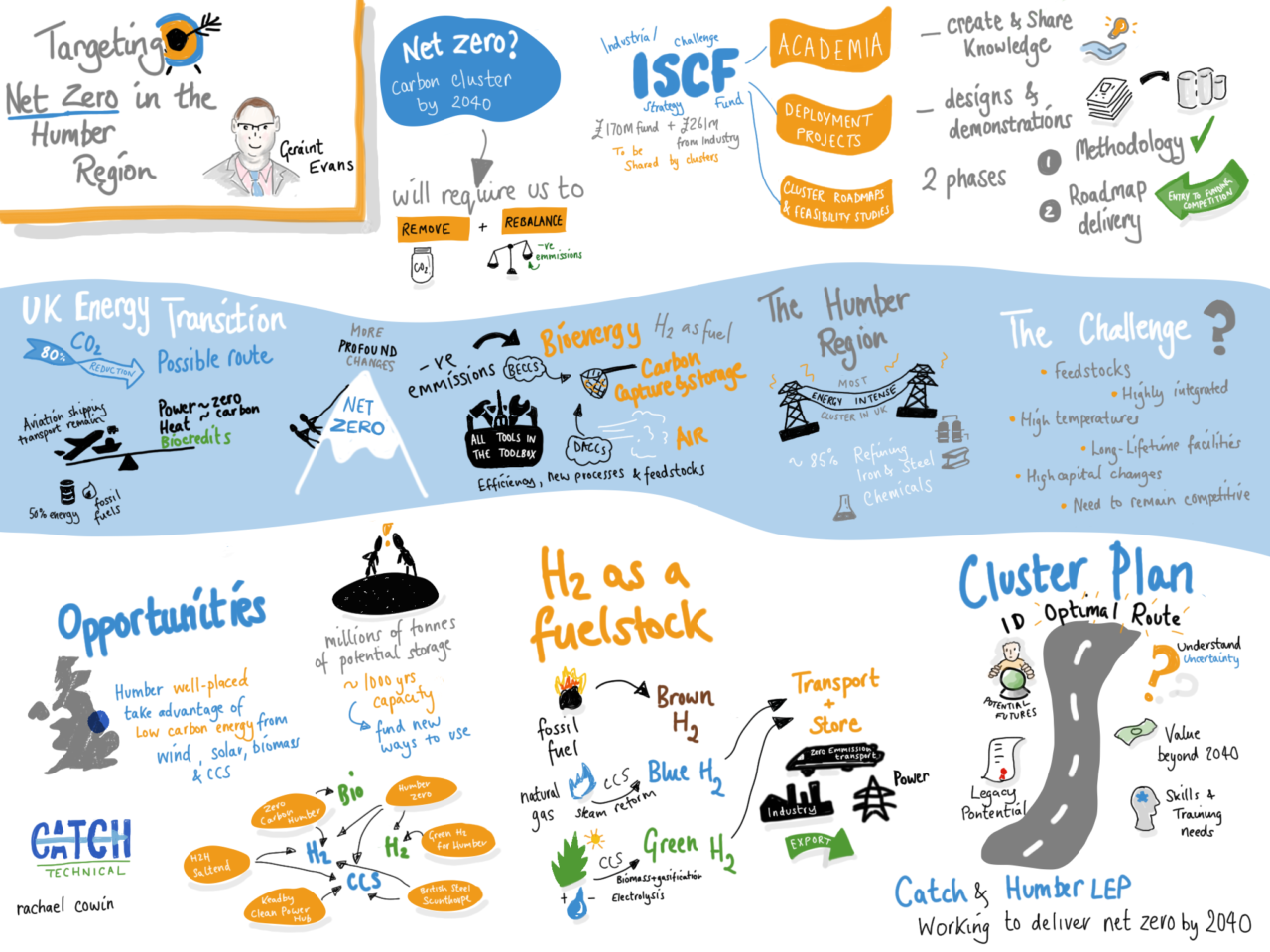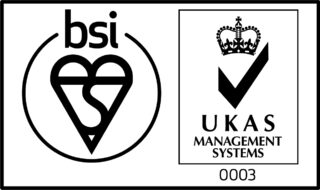Industrial Decarbonisation webinar – a review

In this webinar, Geraint provided an overview of the work Catch and the Humber LEP have been doing recently in preparation for delivering the Humber Cluster Plan (HCP). The HCP will set out a route map to decarbonising the energy intensive industries such as steel, refining and chemicals within the Humber cluster. The HCP will be funded by the Industrial Strategy Challenge Fund (ISCF) which is also funding several large scale deployment projects in the region alongside the Industrial Decarbonisation Research and Innovation Centre at Heriot Watt University which, in collaboration with other Universities, is tasked with developing and sharing new knowledge.
Decarbonisation will lead to profound changes in the way industry uses energy – using outputs from energy system models, Geraint showed how the UK energy system is anticipated to change over the next 30 years. He explained that the industrial sector is one of the most difficult to decarbonise and that this will drive investments into a set of technologies covering demand optimisation, energy efficiency, carbon capture utilisation and storage (CCUS), bioenergy with carbon capture and storage (BECCS), Direct Air Capture with CCS (DACCS), bioenergy and hydrogen. Of these, two of the most crucial are CCS and hydrogen, especially given the need to address process feedstock emissions and emissions from internal industrial fuels.
Finally, Geraint provided an overview of the deployment initiatives underway in the Humber region including H2H Saltend, Humber Zero (Immingham), Keadby Clean power hub, British Steel Scunthorpe, Zero Carbon Humber and Green Hydrogen for Humber, followed by an overview of the next steps for the HCP project.
Due to popular demand the webinar will be re run live on the 13th August at 11am – to register email jill.mooney@catchuk.org






